Netherlands Veterans Institute
As a society we count on our military personnel. They are there for us when we need them. They must be able to count on us when they return from a mission or war. We must welcome them back home and show them that we acknowledge and understand their experiences.
The Netherlands Veterans Institute (Nederlands Veteraneninstituut, or NLVi) was established in 2021, bringing together the strengths of several organisations. We implement much of the Veterans Act by helping to foster recognition, appreciation and care for veterans and their families. We also carry out research and share information on issues relevant to veterans.
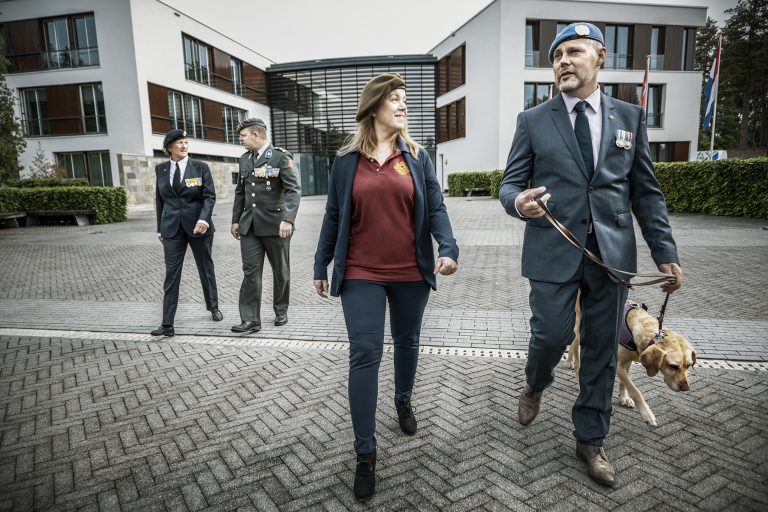
103,000 Veterans in the Netherlands
25% Employed by the Ministry of Defence
83% In possession of a veteran pass
85,000 Visitors to Dutch Veterans Day in The Hague
2,500 Veterans receive support from care coordinators
1,700 Veterans under the care of specialist social services (LZV)
900 Receive specialist mental healthcare (LZV)
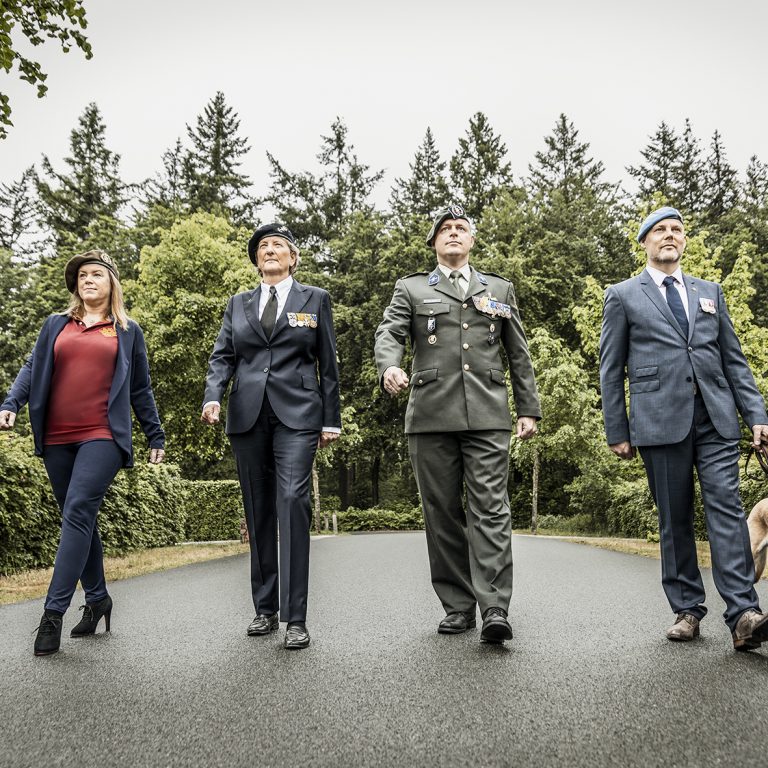
Recognition and appreciation of veterans
Veterans have served the Netherlands in war-torn areas and on international missions. They deserve our recognition and appreciation for their contribution.
Activities for veterans and their families
One of the ways that we demonstrate our recognition and appreciation of veterans and their families is by organising activities such as the annual Dutch Veterans Day on the last Saturday in June in The Hague. On this day the Netherlands can say thank you to all those veterans who fought for peace, security and safety, now and in the past. We support other initiatives to honour and assist veterans, including the honorary guard on 4 May on Dam Square, the veterans unit on the 4Day Marches in Nijmegen and return trips to former mission areas. We organise get-togethers for partners, children and parents of veterans and have set up a closed Facebook group for them through which they can share their experiences.
Veterans’ stories
The Netherlands Veterans Institute promotes an appreciation of the experience of veterans and their families by sharing their stories of war and deployment. Our channels include Checkpoint magazine, our website, the Interview Collection with 1,500 stories and an educational programme. We reach tens of thousands of secondary school students each year with guest lectures as part of our ‘Veterans in the Classroom’ programme and the dilemma game, ‘What would you do?’.
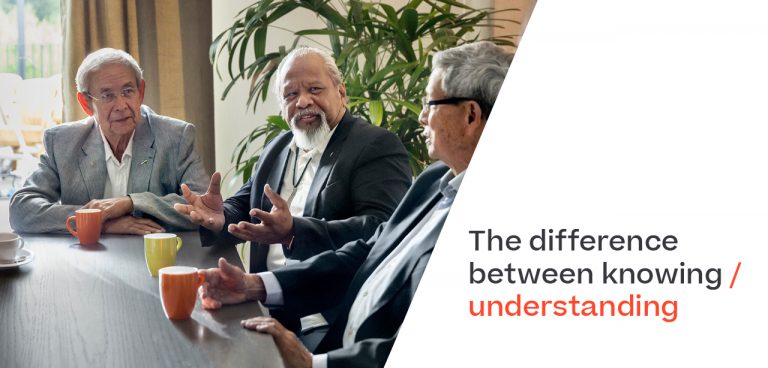
Gert Nieveen, right, was part of the honorary guard with his father Aad on 4 May 2022
“I learned to appreciate the value of freedom during my two missions in Afghanistan. For me, 4 May is a day for reflection. It was wonderful to be able to share that with my father. Together on Dam Square, both veterans. I hope he gets the recognition and appreciation he deserves for his mission in Lebanon.”
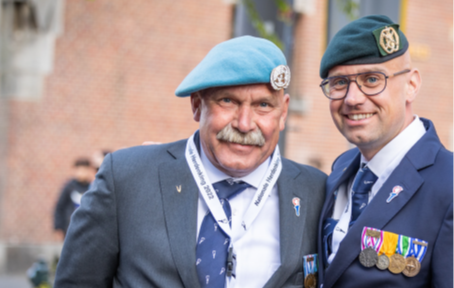
Good care for veterans and their families, service and other uniformed personnel, and civilians affected by WW2
Deployment abroad always has an impact. Usually the impact is positive but it can also be a life-changing experience.
Veteran Office
The Veteran Office is there to help veterans and their families find answers to their questions. It can put them in touch with the right person to deal with their support needs: a family carer, a care coordinator or specialist social worker. It can also bring the outreach team on board if the veteran is finding it difficult to make the first contact or accept help. The Veteran Office is the gateway to the National Healthcare System for Veterans (LZV).
National Healthcare System for Veterans
The LZV is a joint civil-military care organisation of 10 institutions working together with the NLVi to provide veterans with the most appropriate psychosocial help and psychological trauma care. The aid and care workers from the 11 institutions involved understand the issues faced by the military and are experienced in counselling and treating veterans and their families. The LZV has short waiting times and specialist facilities such as the Veterans Intensive Treatment Unit (VIBU).
Police, fire and ambulance
Former and current police officers with service-related concerns can also turn to the NLVi. We offer training, chat groups and an independent helpline that is available 24/7. We also offer access to a support centre to regional fire and ambulance services, providing support and care in the aftermath of traumatic incidents.
Civilians affected by WW2
The trauma suffered by people who experienced World War 2 in Europe or Southeast Asia in many cases still affects their day-to-day lives and can have a profound impact on their children. We understand the specific issues faced by war-affected people with an Indonesian, Moluccan and European background and can offer them and the post-war generation psychosocial help.
Veteran pass, lapel pin and Checkpoint
The veteran pass and lapel pin are symbols of recognition and appreciation. They are handed out by the Veteran Office. Pass holders receive our free magazine Checkpoint, train tickets to events for veterans and other benefits. Checkpoint is published eight times a year and features news, veterans’ stories and background on current and past missions.
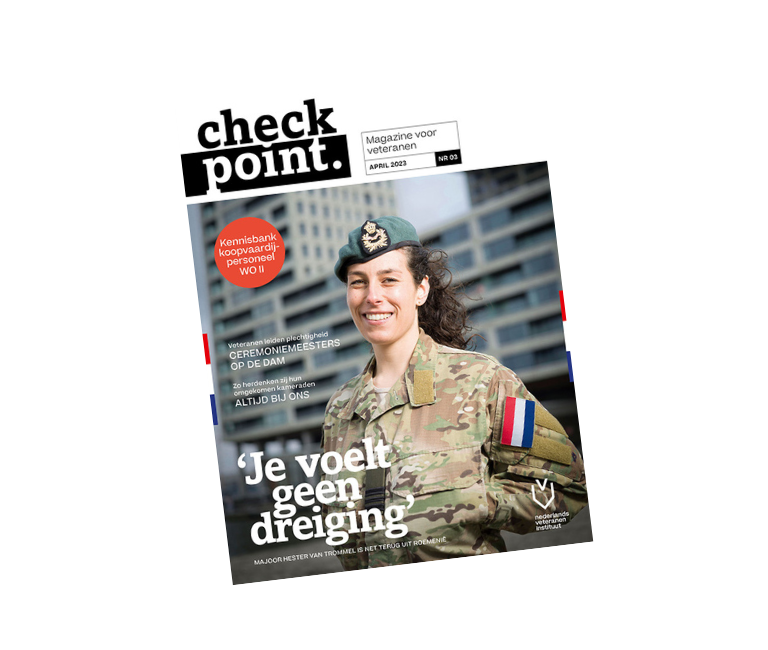
Hetty, partner of a veteran, found help through the Veteran Office
“Over the past 15 years my husband has been continually on high alert, and so have I. I shielded him from a lot of things. That brought out the best possible version of my husband, but not of me.”
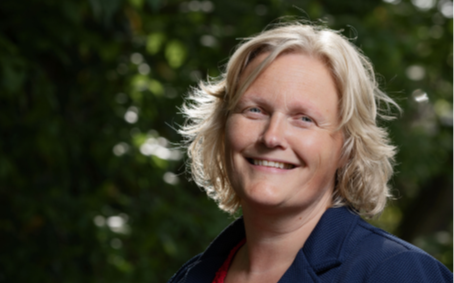
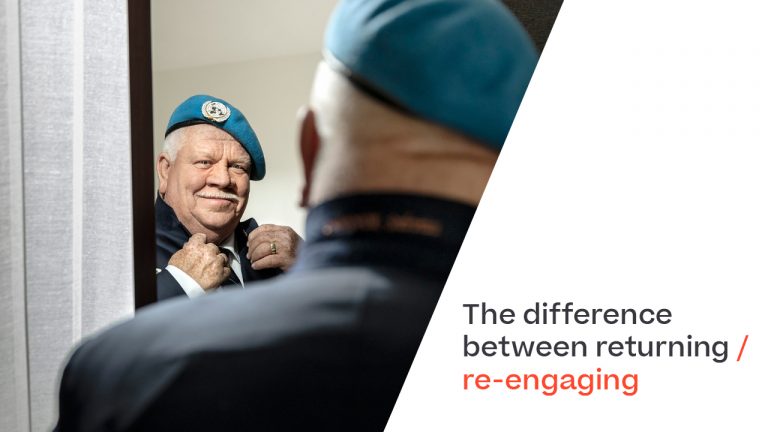
Research and knowledge distribution about veterans
The NLVi, the LZV, the Ministry of Defence and other organisations in the Netherlands conduct extensive research about veterans.
NLVi research
With our research we hope to continue improving what we know about the veteran population. How do they look back on their deployment, and how does that experience affect their lives and that of their loved ones? What is the state of their health and wellbeing, and what deployment-related care is appropriate? We also explore the relationship between veterans and society. Every year the NLVi makes a number of grants available to organisations wishing to conduct academic research on issues relevant to veterans.
Knowledge distribution
The NLVi shares the knowledge gained from research on veterans through, for example, publications, its website and its annual research day. We can use this knowledge to ensure that the recognition, appreciation and care for veterans does justice to their experiences and needs.
Based in Doorn
We offer veterans a place where they can meet and feel at home. Where they are understood and acknowledged so that they can continue to make a difference in society.
Hotel and facilities
Our woodland location in Doorn includes a hotel with 37 rooms, some of which are equipped for people with extra needs. We have a restaurant with a terrace, an assembly room which can hold up to 200 people and several spaces suitable for hosting reunions, meetings, training courses and mentoring programmes. There is also a room for quiet contemplation and a memorial. Our building is easily accessible by public transport. Parking is free of charge. The NLVi has received Green Key certification for sustainability.
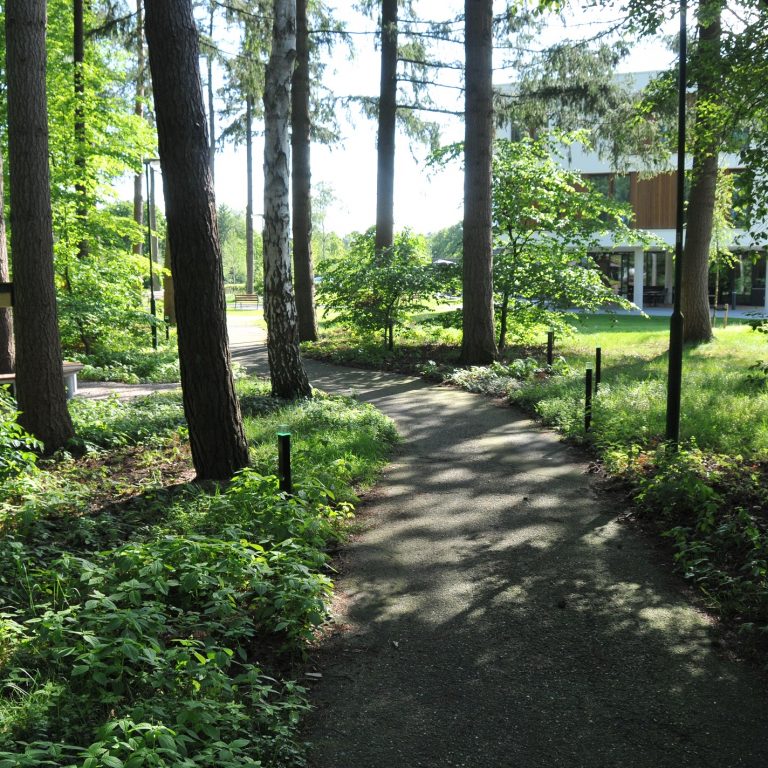
Contact information
Netherlands Veterans Institute
Willem van Lanschotlaan 1, 3941 XV Doorn Postbus 125, 3940 AC Doorn
- General
088 334 00 50
info@nlveteraneninstituut.nl - Press office
088 334 00 40
persvoorlichting@nlveteraneninstituut.nl - Veteran Office
088 334 00 00
info@veteranenloket.nl - 24/7 Police desk
0800 1218
info@247loket.nl - Helpdesk fire services
0800 1288
info@steunpuntbrandweer.nl - Helpdesk ambulance services
0800 1299
info@steunpuntambulance.nl